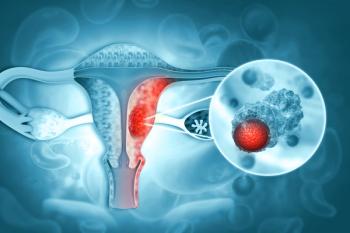
Pregnant Individuals With HIV Have a Higher Risk of Hypertensive Disorders if They Have a Weak Immune System
The new NIH-funded study has shed light on the challenges faced by pregnant individuals living with HIV as hypertensive disorders in pregnancy pose a crucial health risk to expectant mothers.
The risk of hypertensive disorders in pregnancy was higher for pregnant women with HIV if they had low CD4+ immune cell counts in the first or second trimester, or if they began taking antiretroviral drug regimens after 20 weeks of pregnancy, according to a study funded by the
The new NIH-funded study has shed light on the challenges faced by pregnant individuals living with HIV as hypertensive disorders in pregnancy pose a crucial health risk to expectant mothers.
The study, which analyzed medical records of pregnant people with HIV, revealed that factors such as a weaker immune system and the timing of antiretroviral drug regimens, significantly influence the risk of developing hypertensive disorders during pregnancy.
Hypertensive disorders in pregnancy includes a range of conditions such as chronic hypertension, gestational hypertension, preeclampsia, and eclampsia, all of which can have serious consequences for maternal health.
In addition, a condition known as HELLP syndrome, characterized by hemolysis, elevated liver enzymes, and a low platelet count, further compounds the risks associated with these disorders, the study stated.
Though prior research has suggested a higher prevalence of hypertensive disorders among pregnant individuals with HIV, researchers of the study sought to examine whether the type and timing of antiretroviral drug regimens played a role in the development of these disorders.
Study researchers analyzed data from 973 pregnancies within a larger NIH-funded study, which aimed to monitor the health of children born to pregnant individuals with HIV.
Findings revealed that approximately 9.5% of the participants experienced new-onset hypertensive disorders during their pregnancies, while 9.8% had pre-existing chronic hypertension. Additionally, 81% of the participants did not have hypertension.
A key finding was the association between CD4+ cell counts and the risk of new-onset hypertensive disorders.
Researchers found that pregnant individuals with low CD4+ cell counts, less than 200 cells per microliter, during the first or second trimester were at roughly twice the risk of developing such disorders compared to those with higher CD4+ counts.
The timing of antiretroviral therapy initiation also emerged as a critical factor.
Those who concluded their therapy after the 20-week mark of pregnancy were nearly twice as likely to experience new-onset hypertensive disorders compared to those who were already on medication at the time of conception.
The findings in the study highlight that individuals with a weaker immune system in early pregnancy and those who delay the initiation of antiretroviral therapy are at the greatest risk of developing hypertensive disorders during pregnancy.
By managing HIV and optimizing immune function, folks can minimize the risk of hypertensive disorders during pregnancy and ensure a healthier outcome for both themselves and their babies.
Newsletter
Get the latest industry news, event updates, and more from Managed healthcare Executive.























